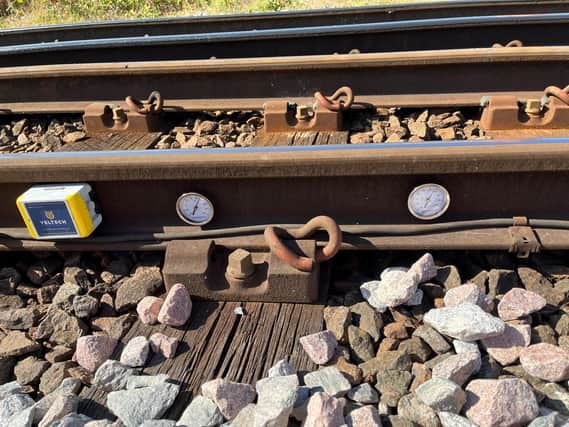Train bosses urge essential travel only during extreme heat


The Met Office has issued a red weather warning for extreme heat, with temperatures forecast to reach as high as 40°C in some areas.
Steve Hopkinson, operations director for Network Rail, said: “Our railway is simply not engineered to run normally in such extreme temperatures. We’ve got extra teams out around the route, ready to respond to incidents but with temperatures set to break records, we need to also reduce the speed at which trains can run throughout Monday and Tuesday. This reduces the risk of tracks buckling in the heat and also means that when the overhead line expands it won’t create a safety risk to trains.
Advertisement
Hide AdAdvertisement
Hide Ad“Reduced speeds means fewer services can run, so I ask our passengers to only travel if they need to. If you do need to catch a train, please plan well ahead, leave more time for your journey and take plenty of water with you.”
If passengers absolutely must travel, they should keep up to date with the latest information via National Rail Enquiries or with their train operator.
Neil Grabham, Customer Services Director at East Midlands Railway, added: “The start of the week will be very hot and, although we want to help people enjoy it, our priority will always be the safety of our customers and our staff.
"As a result, fewer services will run and journeys will take significantly longer.
"We are asking customers to only travel if necessary.
Advertisement
Hide AdAdvertisement
Hide Ad"If customers do travel, please bring a bottle of water and anything else needed to keep well in the heat and make sure to check your journey before setting off."
Govia Thameslink Railway Chief Operating Officer Angie Doll added: “Please think carefully about your options.
“With the Met Office issuing warnings for extreme heat, speed restrictions are being put in place across our network to keep trains and passengers safe.
“This means we’ll have far fewer services for people to catch and these will also be at very real risk of substantial disruption. Even if you are able to travel in the morning, you may need to consider alternative ways to get home as a result.”